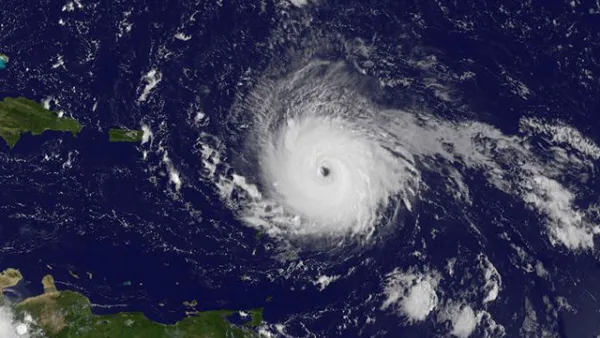A floating city has been proposed to help ease some of the problems being faced by earthquake-damaged Haiti. But is this the answer the struggling country needs?
The City Fix's Erica Schlaikjer takes a look at the idea, how relevant it would be and how it compares to other similar ideas.
"The 'Harvest City,' as it is called, was recently profiled in Inhabitat as a 'key player in Haiti's recovery.' Developed by Boston-based architect E. Kevin Schopfer and Tangram 3DS, the city is a collection of man-made 'islands,' or floating modules, spanning two miles, that would be secured to the bottom of the ocean by a cable designed to withstand hurricanes and typhoons. (Although, what happens when, God forbid, a tsunami hits?) Each island would be divided into four zones connected by a canal system. The city would be dedicated mostly to farming, with one-third of the economy involved in 'light industry.' Schopfer says he also hopes that Harvest City will be established as a 'charter city,' which would serve 'as an example of a new and advanced economic model specifically developed for struggling nations.'
Inhabitat says Harvest City 'would be a place for Haitians to live and start their lives again.' But what about their current quality of life? Does the prospect of a futuristic development assume that Haitians aren't 'living' to the fullest now? Why wait to renew their health and happiness?"
FULL STORY: Floating City for Haiti: Does it Hold Water?

Analysis: Cybertruck Fatality Rate Far Exceeds That of Ford Pinto
The Tesla Cybertruck was recalled seven times last year.

National Parks Layoffs Will Cause Communities to Lose Billions
Thousands of essential park workers were laid off this week, just before the busy spring break season.

Retro-silient?: America’s First “Eco-burb,” The Woodlands Turns 50
A master-planned community north of Houston offers lessons on green infrastructure and resilient design, but falls short of its founder’s lofty affordability and walkability goals.

Test News Post 1
This is a summary

Analysis: Cybertruck Fatality Rate Far Exceeds That of Ford Pinto
The Tesla Cybertruck was recalled seven times last year.

Test News Headline 46
Test for the image on the front page.
Urban Design for Planners 1: Software Tools
This six-course series explores essential urban design concepts using open source software and equips planners with the tools they need to participate fully in the urban design process.
Planning for Universal Design
Learn the tools for implementing Universal Design in planning regulations.
EMC Planning Group, Inc.
Planetizen
Planetizen
Mpact (formerly Rail~Volution)
Great Falls Development Authority, Inc.
HUDs Office of Policy Development and Research
NYU Wagner Graduate School of Public Service


























